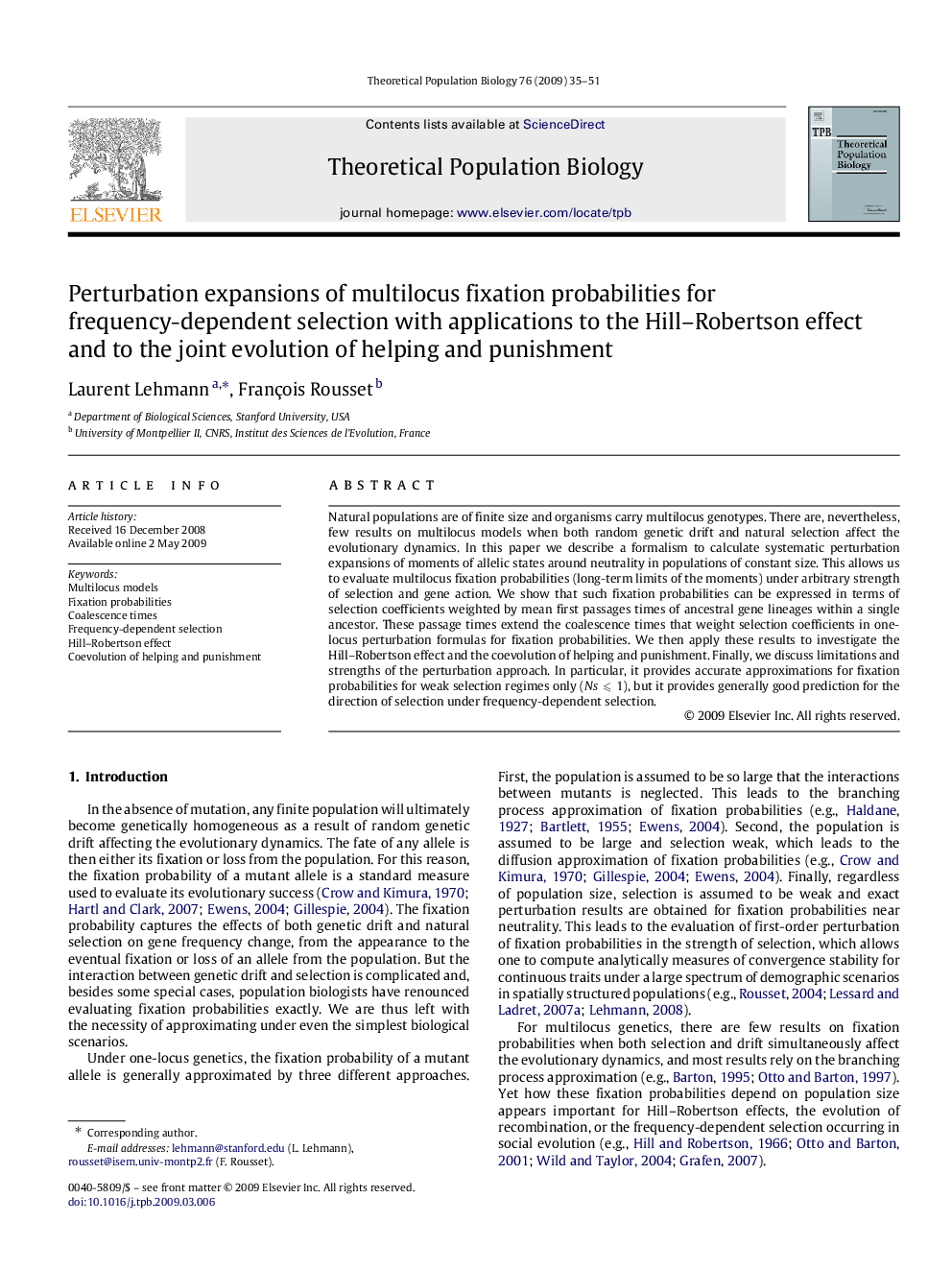| Article ID | Journal | Published Year | Pages | File Type |
|---|---|---|---|---|
| 4502630 | Theoretical Population Biology | 2009 | 17 Pages |
Abstract
Natural populations are of finite size and organisms carry multilocus genotypes. There are, nevertheless, few results on multilocus models when both random genetic drift and natural selection affect the evolutionary dynamics. In this paper we describe a formalism to calculate systematic perturbation expansions of moments of allelic states around neutrality in populations of constant size. This allows us to evaluate multilocus fixation probabilities (long-term limits of the moments) under arbitrary strength of selection and gene action. We show that such fixation probabilities can be expressed in terms of selection coefficients weighted by mean first passages times of ancestral gene lineages within a single ancestor. These passage times extend the coalescence times that weight selection coefficients in one-locus perturbation formulas for fixation probabilities. We then apply these results to investigate the Hill-Robertson effect and the coevolution of helping and punishment. Finally, we discuss limitations and strengths of the perturbation approach. In particular, it provides accurate approximations for fixation probabilities for weak selection regimes only (Ns⩽1), but it provides generally good prediction for the direction of selection under frequency-dependent selection.
Related Topics
Life Sciences
Agricultural and Biological Sciences
Agricultural and Biological Sciences (General)
Authors
Laurent Lehmann, François Rousset,
